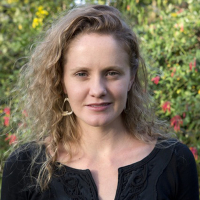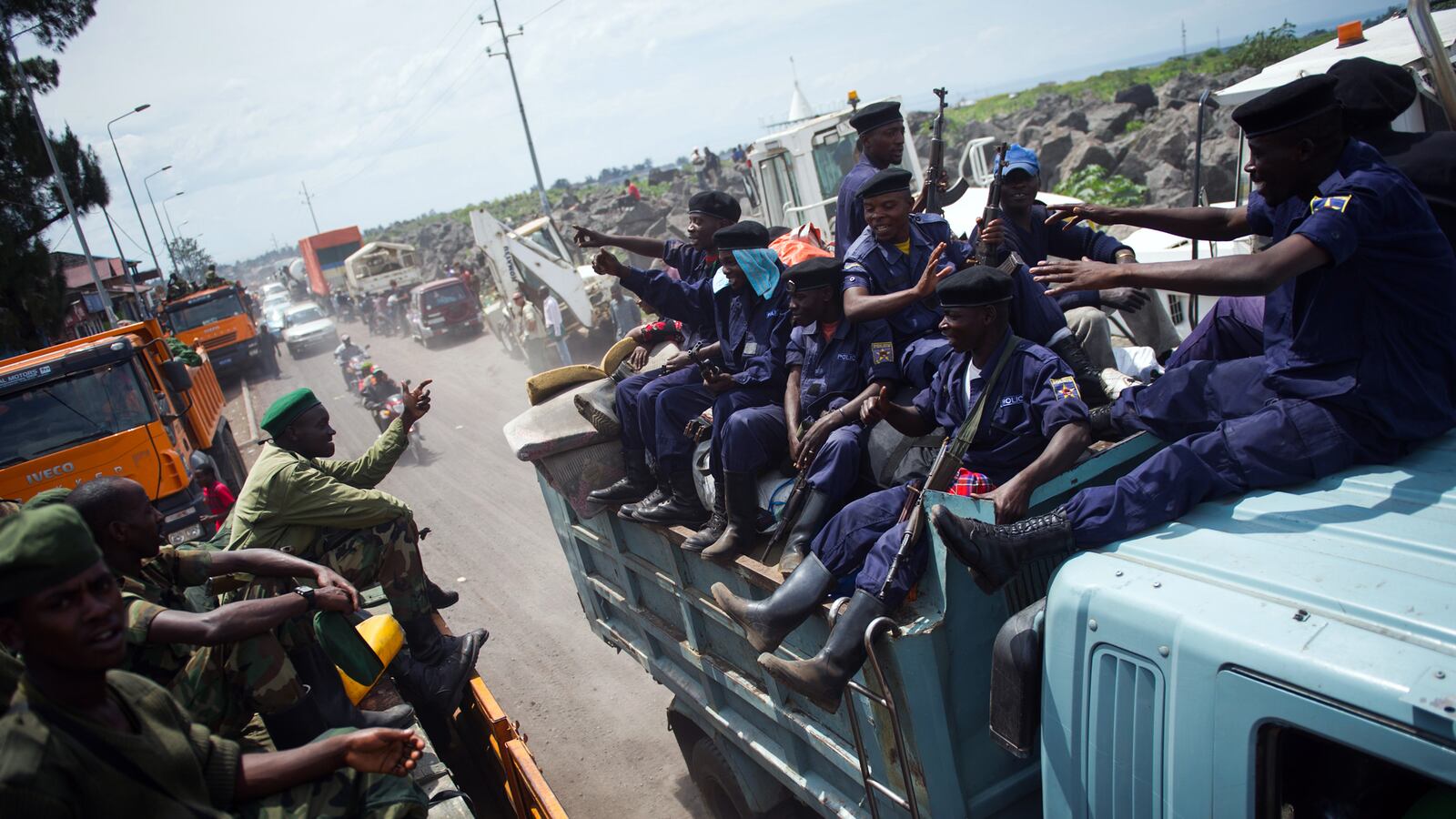Crowds of people in the embattled city of Goma, in the eastern Democratic Republic of Congo, lined the streets like a parade route to witness the departure of the Rwanda-linked M23 rebel group this weekend. Eleven days after the mutineers stormed and then occupied the strategic provincial capital, they withdrew to bases outside the city, though maintained a presence at the airport. As the rebels left, they sang victory songs, brandished weapons and vowed to return “if [Congolese President Joseph] Kabila provokes us.”

A deal brokered in neighboring Uganda brought the standoff to an end, for now, and paved the way for talks between the Congolese government and the M23 rebels. There’s a chance those regional negotiations—bolstered by another behind-the-scenes gentlemen’s agreement between the presidents of the DRC and Rwanda—could at least temporarily put this particular rebel faction to rest, as they did the last time a Congolese rebellion with strong ties to Rwanda flared up. The leader of that group, which was the precursor to the M23 movement, remains under house arrest in Rwanda and hasn’t been heard from publicly since early 2009.
But there are hints that the M23 rebellion could reignite the region in full-on conflict that would again draw Congo’s neighbors into the fray, analysts warn. The ingredients are there: abysmally low levels of trust between adversaries; a Congolese president short on domestic legitimacy; and thousands of square miles of land rich in resources, spoils of war that make chaos a profitable circumstance for a powerful few. Furthermore, some of the arrangements that brought about calm in the past look less attractive now that they’ve spectacularly failed, analysts say.
“Some people are seeing M23 as a kind of pimple, when actually you have the bubonic plague. The pimple is a symptom of something much bigger,” says Gérard Prunier, a French academic and author of Africa’s World War: Congo, the Rwandan Genocide, and the Making of a Continental Catastrophe.
The rebels themselves aren’t well liked in eastern Congo; Goma residents say the rebellion is a barely disguised intervention by a Rwandan government bent on staking claim to Congo’s vast mineral wealth. United Nations investigators, Human Rights Watch, and independent analysts have supplied evidence to back those perceptions, with the U.N. Group of Experts going so far as to say in a report published in November that the M23 commanders report directly to the current Rwandan defense minister.
With their estimated 2,000 men—a relatively low number, considering the expanse they command—the M23 has swept through areas controlled by the notoriously undisciplined Congolese army and their loosely aligned militias. They will have to recruit far larger numbers if they have any hope of marching nearly 1,000 miles across the country to capture the capital, as some M23 leaders say is their aim and as President Kabila’s father, former president Laurent Kabila, did—with Rwandan backing—in 1996. Analysts say recruitment will likely be a priority for the group, even after talks begin.

Prunier dismisses the negotiations wholesale, saying that Congo and Rwanda are “just playing a waiting game until the situation on the ground gets sorted out.” He says the trend to watch for will be whether local militia groups, known as Mai Mai, increasingly start fighting on the side of the M23—evidence of Rwanda’s effort to add “local color” to boost the popularity of the movement among frustrated Congolese.
“[Rwandan President Paul] Kagame will try to recruit Congolese, and that is a very difficult job. These Mai Mai groups are thugs, but they have a basic patriotism,” Prunier says. “To work with the Rwandese is like asking a Frenchman to work for a German invading force. It’s not something natural.” He notes that Uganda, which also has documented ties to M23, may have more luck with recruitment because its history with Congo is less fraught.
“It’s common knowledge in the East, even to the most uneducated Congolese, that Kabila didn’t win the [2011] election, and if he did it is only with the strong help of Kagame” and an allied rebel faction that had been officially integrated into the Congolese army, says Fidel Bafilemba, a Goma-based researcher for the U.S. advocacy group Enough Project. “What does that mean for his legitimacy? People’s perception here is that Congo has been in real chaos these past 12 years because of him. He had turned a blind eye to army abuses, protected Bosco Ntaganga,” a former rebel turned army commander who is wanted by the International Criminal Court. Bafilemba says that Kabila’s own allegiances are questioned because he has a long history with Kagame, Ugandan President Yoweri Museveni, and Rwandan defense minister James Kabarebe, and has personally benefitted from mining in the East.
Those are the grievances to which Rwanda, through more palatable Congolese emissaries, will likely try to appeal, as they have in the past. But over time the rationale Rwanda has used to explain its involvement has diminished, says Congo specialist and former head of the U.N. Group of Experts Jason Stearns.
“In 1998, northwestern Rwanda was in a state of insurrection. The FDLR [militia headed by former genocidaires], at that point called ALiR, had bases in eastern Congo and were launching a very large offensive. The genocide was just four years past. You had a strong justification from the Rwandans, and the international community just went along with it,” Stearns says.“Now you have a government [in Kinshasa], and the international community has spent billions of dollars building democratic institutions, holding elections.” In addition, the FDLR is now “drastically weakened,” he says. “So where is Rwanda’s justification? The geopolitics of this conflict have shifted.”
And during that time, a range of potential solutions have been tested to break the cycle of conflict and to address the state collapse and predatory nature of Congo’s own military—all of which have contributed to the estimated 5.4 million deaths since 1998.
“Congo has started to melt. It’s melting, of course, beginning from its most fragile end: the East,” Prunier says. “But if tomorrow you could have the secession of Katanga back on the books, I wouldn’t be surprised,” he adds, referencing Congo’s second largest province, known for its copper and cobalt, and which broke away for three years shortly after independence.
The M23 rebels have given Kabila until Monday to begin talks, warning they will retake Goma if the government misses the deadline. But expectations among observers of what those negotiations will yield aren’t optimistic about a lasting solution.
Rwanda’s “mistrust of Kabila, and also I think their antipathy towards him, is much deeper than in the past,” Stearns says. “It’s impossible to predict the future, but it seems that they aren’t interested in negotiation, that they might negotiate as sort of a diplomatic front.” But it appears Rwanda is interested in something larger, he says, whether “the implosion of Kabila’s government or the secession of the East.”
“It’s difficult to know; they don’t speak frankly about those things,” Stearns says. “But the main thing is that they don’t think a compromise is possible. And they say that openly. They don’t think Kabila is going to strike a compromise.”






